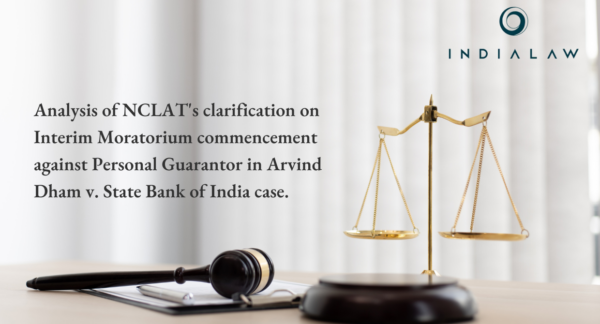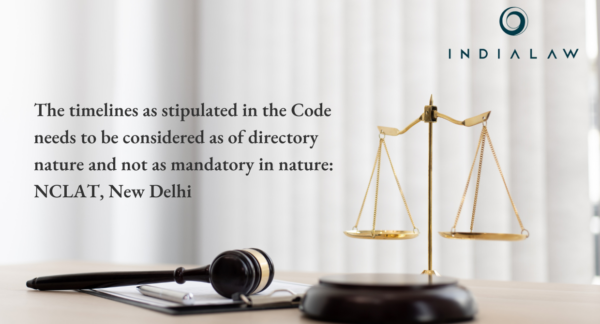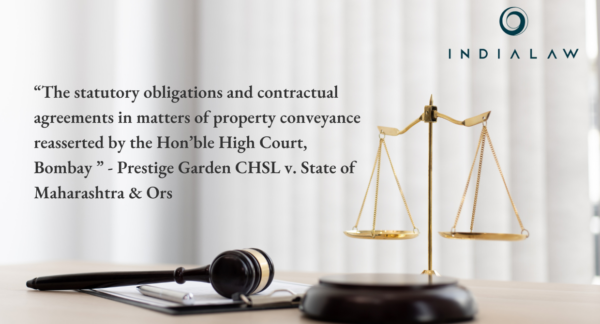SARFAESI – DRAT has no Power for Complete Waiver of the Deposit


In a recent judgment[1], the High Court of Bombay held that the Debt Recovery Appellate Tribunal (“DRAT”) had no power to completely waive the deposit required under section 18 of the Securitisation and Reconstruction of Financial Assets and Enforcement of Security Interest Act, 2002 (“SARFAESI Act”) while filing an appeal against the order of Debt Recovery Tribunal (“DRT”). The judgment was delivered in a Writ Petition filed by the petitioner purchaser who purchased the subject property in an auction conducted under the SARFAESI Act.
Facts of the case:-
- The Writ Petition was filed challenging the order of DRAT which granted complete waiver of deposit required under section 18 of the SARFAESI Act. The subject matter of the dispute was pertaining to certain properties purchased by the petitioner from an auction conducted by the banks under SARFAESI Act. These properties, which belonged to respondent borrower and mortgaged to the banks, were sold by the banks to the petitioner in exercise of their powers under the provisions of the SARFAESI Act, when the borrower defaulted in payment.
- The Borrower sought to challenge the auction by filing an application before the DRT under section 17 of the SARFAESI Act. During the pendency of the application, the properties were sold to the petitioner and he was impleaded as a party to the application.
- After hearing the parties, the Debt Recovery Tribunal (“DRT”) by its detailed order dismissed the Application filed by the borrower.. Being aggrieved by the order passed by the DRT, the borrower filed an appeal before the DRAT under Section 18 of the SARFAESI Act In the said appeal, DRAT allowed a complete waiver of the deposit required to be made under sec 18 (1) of the SARFAESI Act.
Section 18 (1) of the SARFAESI Act
This section provides that an appeal against the order of DRT can be filed before the DRAT only if the borrower has deposited with the DRAT 50% of the debt which is due. The section allows the DRAT to reduce the deposit upto 25% of the debt due for reasons recorded to be in writing.[2]
Arguments on behalf of the Petitioner and the Respondent:-
The petitioner argued that the DRAT had no jurisdiction to completely waive the deposit as the section clearly states that the maximum reduction in deposit is up to 25% and not less than that.
The Respondent on the other hand contended that the banks had already recovered the loan amount by the sale of the properties hence there was no requirement for him to deposit any amount.
Judgment and analysis given by the High Court
- The DRAT had no power or jurisdiction to reduce the deposit amount to less than 25%. The requirement under section 18 is mandatory in nature and the DRAT had no power to grant full waiver of deposit.
- The borrower wanted to use the sale proceeds received from sale of the properties to be adjusted/ given credit for in the application for waiver of deposit and at the very same time challenge the sale of very same subject properties. This was defeating the very purpose for which Section 18 was enacted, which was to curb unnecessary and frivolous litigation.
- The Hon’ble High Court therefore allowed the writ petition and quashed and set aside orders passed by the DRAT.
[1] Eskays Construction Pvt. Ltd. V. Soma Papers and Industries Limited, Writ Petition No. 1315 of 2014
[2] Sec. 18 of the SARFAESI Act is extracted below.
Appeal to Appellate Tribunal.—(1) Any person aggrieved, by any order made by the Debts Recovery Tribunal under Section 17, may prefer an appeal along with such fee, as may be prescribed to an Appellate Tribunal within thirty days from the date of receipt of the order of Debts Recovery Tribunal:
Provided that different fees may be prescribed for filing an appeal by the borrower or by the person other than the borrower: Provided further that no appeal shall be entertained unless the borrower has deposited with the Appellate Tribunal fifty per cent of the amount of debt due from him, as claimed by the secured creditors or determined by the Debts Recovery Tribunal, whichever is less:
Provided also that the Appellate Tribunal may, for the reasons to be recorded in writing, reduce the amount to not less than twenty-five per cent of debt referred to in the second proviso.




